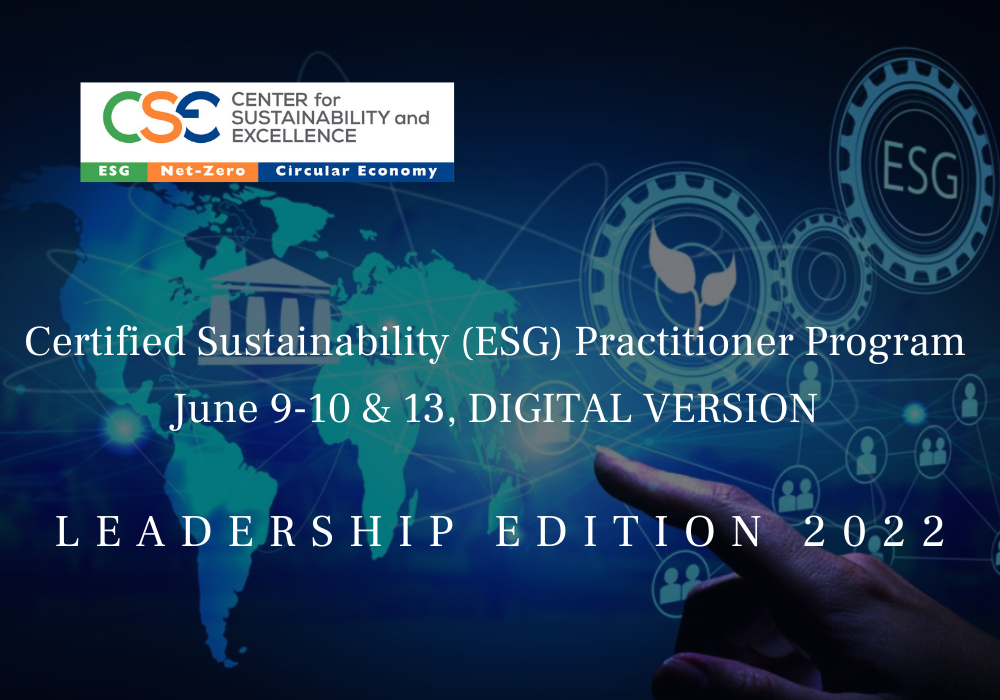What can happen when SMEs embed ESG practices into the core of their business strategy?
SMEs can drive operational and financial efficiency, risk mitigation and stakeholder engagement by integrating ESG considerations and metrics
Published: May 24, 2022 By CSE research team
Small and medium-sized enterprises are the backbone of the global economy. SMEs account for the majority of businesses worldwide and are important contributors to job creation and global economic development.
According to the International Labour Organization, they represent 90% of all firms globally. They contribute to roughly 70% of employment, and drive up to 70% of global GDP. This suggests that SMEs have an important footprint. Yet very little has been done to encourage or help them reduce their impact. They play significant roles in shaping the future of sustainability. Their organizational capabilities today define their future-readiness.
How to address this mounting pressure becomes key!
1. The pressure comes from multiple stakeholders
1a. In terms of regulations things are moving fast. In the EU, new regulations, such as the Corporate Sustainability Reporting Directive or the Corporate Sustainability Due Diligence Directive will enter into force gradually. The legislation adopts a whole value chain approach. It means that large corporations increasingly impact smaller companies because the large corporations, which often are their clients, will scrutinize the whole supply chain referring to these new metrics.
1b. A few years ago, only a minority of investors considered ESG factors. Today 2/3 of investors take into account ESG factors. With investors steadily increase their interest in the ESG, the pressure on smaller companies is becoming even greater, making ESG strategies vital to their growth. In the next few years, more ESG financing programs tailored to SMEs are expected. SMEs are less likely to be able to obtain bank loans than large firms; instead, they rely on internal funds, or cash from friends and family, to launch and initially run their enterprises. With a business model that focuses on ESG, they can secure more working capital opportunities and diversify their financing. SMEs become more creditworthy when they increase their ESG performance. A key fact is that investors are always lookin for investment returns, where risk mitigation is stronger.
2. Millennials and Generation Z are more sustainability-oriented
ESG metrics, on the other hand, have become a reference point for stakeholders, including customers. Consumers are becoming increasingly aware of the ethical and environmental implications of their consumer habits, with Millennials and Generation Z being more committed to supporting companies having a positive impact on society. Interestingly, 80% of them believe that companies should make greater efforts to protect the environment, while they are willing to spend 10% more to buy sustainability-oriented products.
3. Global supply chains will be applying huge importance on ESG factors
Moreover, the fact that SMEs are part of a larger ecosystem, the supply chain of larger companies, cannot be overlooked. SMEs are present in large corporations’ value chains and their non-financial performance will have an impact on the metrics of large corporations. There is an estimation that 80% – 90% of greenhouse gas emissions come from supply chains, which means that SMEs have a large share of responsibility to this percentage. For the global investment community, incorporating ESG into investment process is now essentially mainstream. If larger companies want to operate sustainably and achieve net-zero emissions, small and medium-sized enterprises will have to adapt accordingly, otherwise they risk being left out.
4. Sustainability ESG becomes a new vector of value creation for SMEs
In light of the above, it is understandable that the contribution of small and medium-sized companies to the global economy and society is more than significant. Consequently, the world wont be able to pivot to sustainability without the active participation of SMEs. A well-structured plan with the adoption of ESG strategy and practices is not an obstacle, but it rather accelerates growth. SMEs, through their own activities and their own dynamics, have enormous potential to own their impact towards a more sustainable future. Sustainability-driven SMEs are more resilient to large shocks, making them more creditworthy. Thus, companies that ignore the current ESG trends will fail to respond effectively to change.
Upcoming Programs
The Center for Sustainability and Excellence (CSE) has long been at the forefront of recognizing the strategic importance of sustainable value creation objectives for large corporations and SMEs. CSE is a leading training organization specializing in maximizing social, economic and environmental impact. For more than 15 years, we help professionals advance their careers through our certified on-site, online and group training services globally.
This June, CSE holds the Certified Sustainability (ESG) Practitioner Program-Leadership Edition 2022. Claim the last spots on time!









